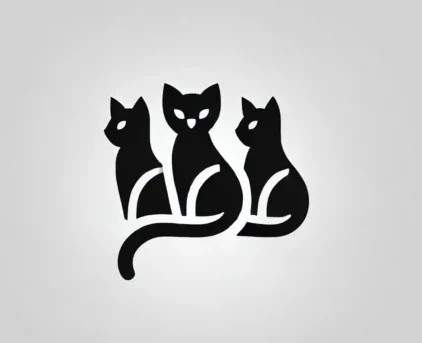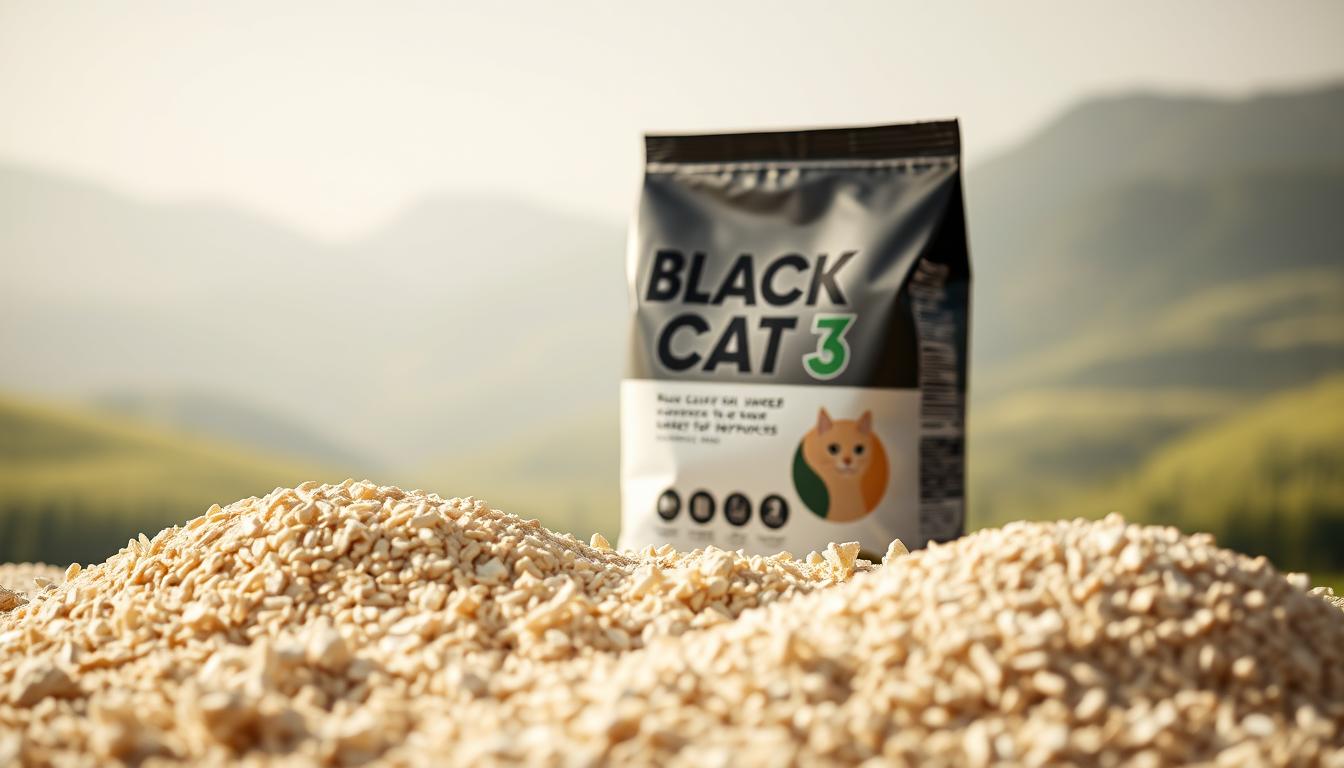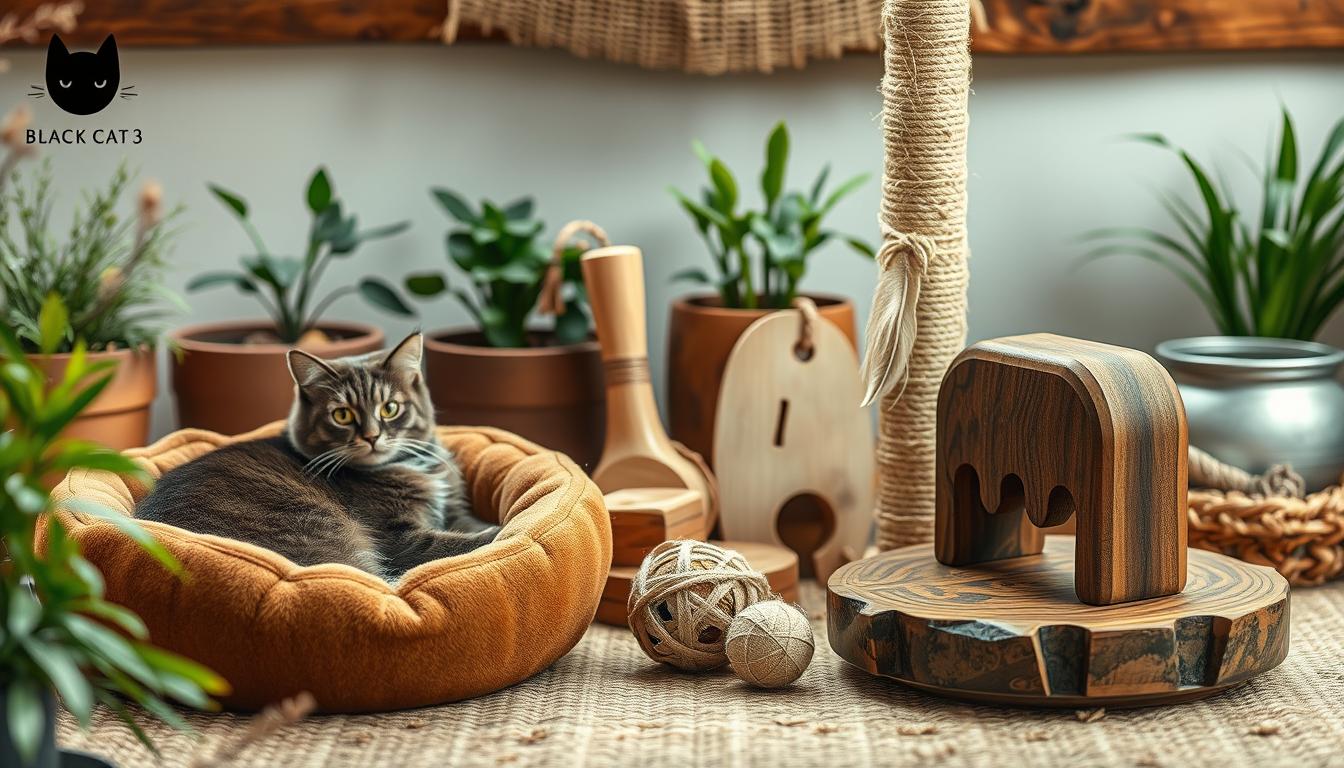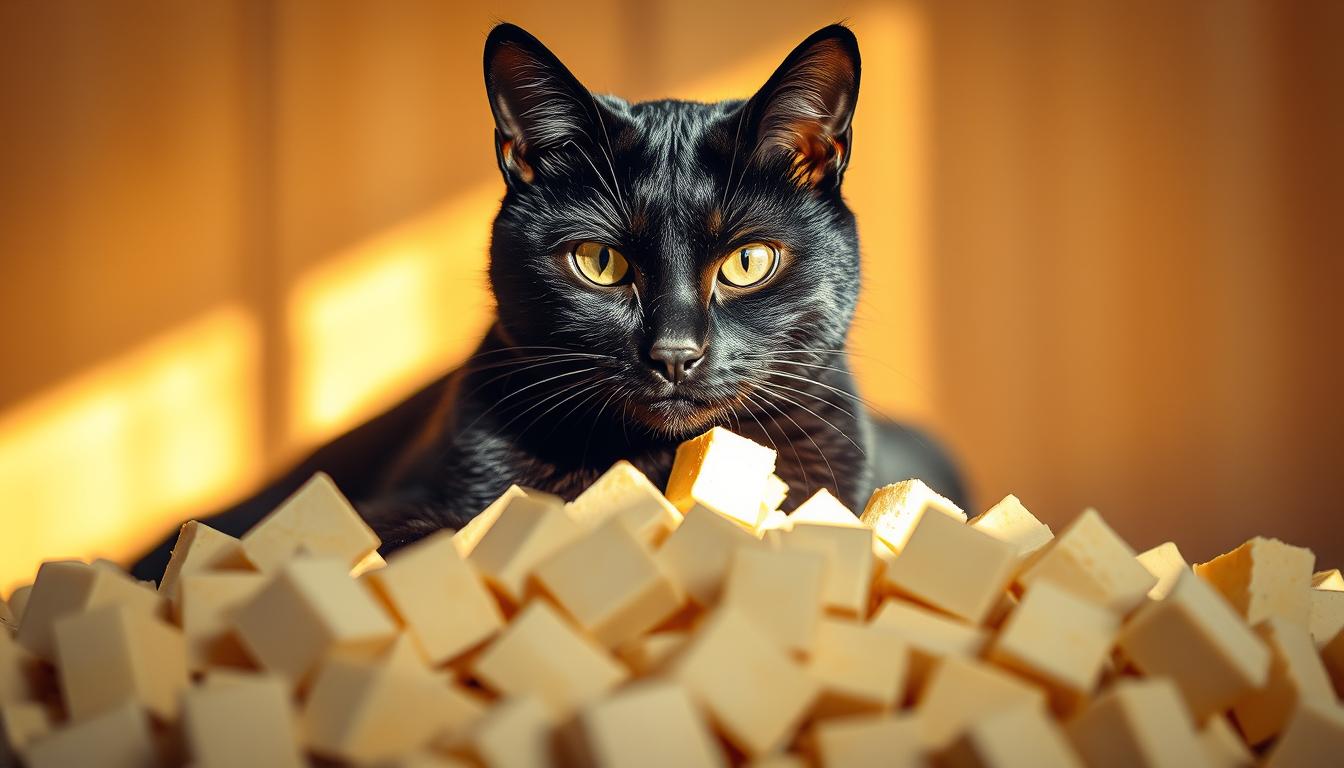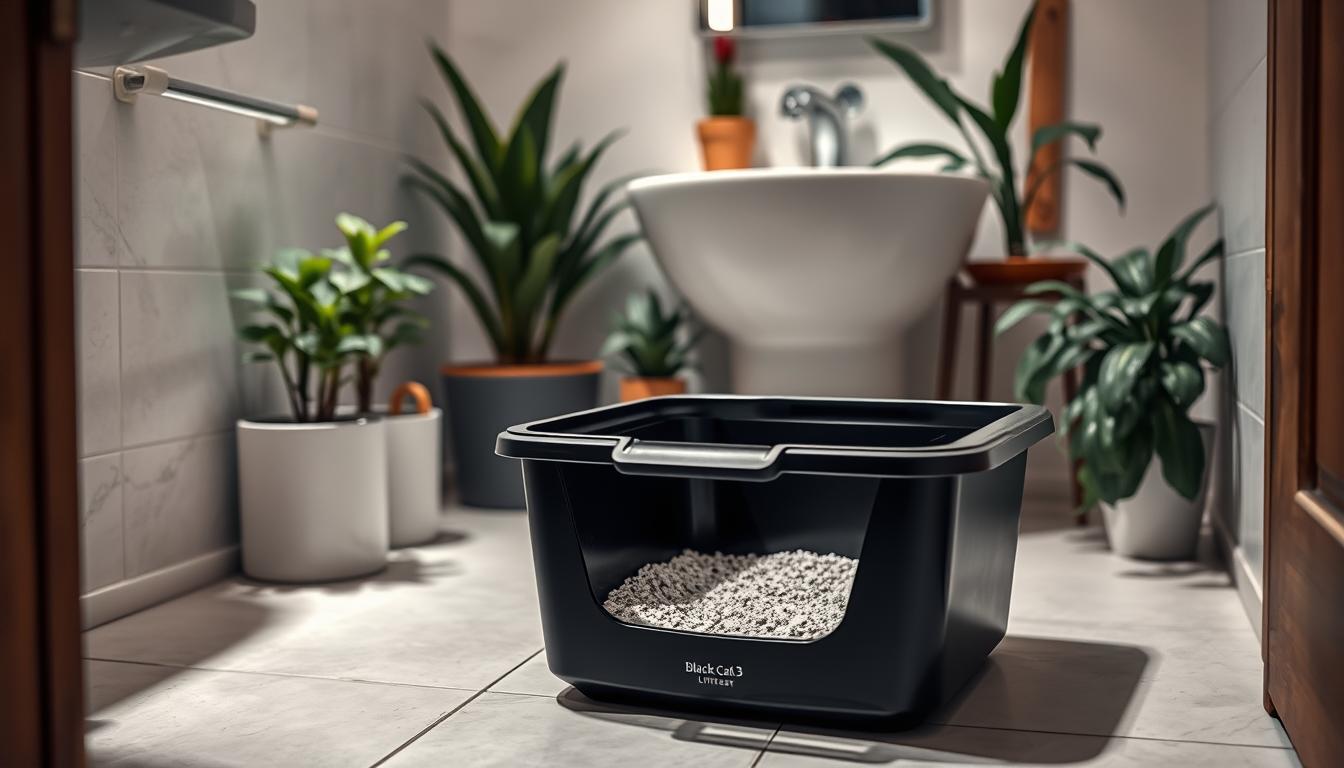Have you ever wondered if your pet’s choices could help the planet? Imagine a world where every small decision—like selecting cat litter—supports a healthier home and a greener Earth. For many families, this vision starts with rethinking everyday products.
Traditional clay options, while common, often leave behind heavy waste and dust. But there’s a kinder alternative: litter made from natural materials. This product works like a gentle hug for your cat’s paws, using ingredients that return safely to the Earth.
Parents and pets alike deserve solutions that balance care with responsibility. By choosing biodegradable options, households reduce landfill waste without sacrificing cleanliness. It’s not just about what’s easy—it’s about what’s right.
Think of it as a tiny step with big impact. Natural formulas absorb odors effectively, and their lightweight design makes them easier to handle. Best of all, they align with values many families hold dear: simplicity, safety, and sustainability.
Key Takeaways
- Eco-friendly options reduce environmental waste compared to traditional clay.
- Natural materials are safer for pets and break down harmlessly over time.
- Biodegradable formulas help households minimize their ecological footprint.
- Lightweight designs and odor control ensure practical daily use.
- Choosing sustainable products supports a healthier home and planet.
Introduction to Natural Cat Litters
Imagine a cozy home where even the smallest choices spark big changes. Natural options for furry friends’ hygiene have grown popular, offering gentle solutions that respect both pets and nature. These earth-friendly picks avoid harsh chemicals while keeping spaces fresh.
What Sets This Product Apart?
Traditional clay varieties often scatter dust like tiny storms. But plant-based choices create calm. “My floors stay cleaner now,” shares Mia, a pet parent from Oregon. Lightweight granules stick together when wet, making clumping cat litter easy to scoop without messy trails.
One standout feature? Used material dissolves safely in water. Families appreciate skipping plastic bags—simply flush approved amounts. This reduces trash and storage hassles.
Why Families Choose Earth-Friendly Options
Health worries drive many changes. Dust from older products can tickle noses—both human and feline. Natural formulas breathe easier. A recent survey found 83% of buyers noticed less tracking around their homes after switching.
| Feature | Traditional Clay | Plant-Based |
|---|---|---|
| Dust Level | High | Minimal |
| Tracking | Common | Low |
| Flushable | No | Yes |
“It’s like giving our planet a high-five,” explains dad-of-two Carlos. By selecting biodegradable granules, households shrink their environmental pawprint while maintaining freshness. Every scoop becomes a tiny act of care.
How Tofu Cat Litter Works
What if cleaning up could feel like magic? Picture tiny helpers in every granule, working hard to keep homes fresh and tidy. Let’s peek behind the curtain to see how this earth-friendly solution tackles messes.
The Science Behind Clumping and Odor Control
When moisture hits the granules, they act like thirsty sponges. Natural plant fibers swell and lock in liquids, forming tight clumps. These clusters stay firm, making cleanup as easy as lifting a cookie from dough.
For smells, think of baking soda’s superpower. Ingredients like natural enzymes break down odor molecules instead of masking them. One customer wrote, “It’s like having an invisible air freshener built into every scoop.”
Flushable and Low-Dust Properties Explained
Ever seen rain wash away sandcastles? Water-soluble granules dissolve safely when flushed, avoiding clogged pipes. “Our toilet handles it without fuss,” shares mom-of-three Leah from Texas.
| Feature | Traditional Granules | Plant-Based Option |
|---|---|---|
| Flushable | No | Yes |
| Dust Level | High | Nearly None |
| Breakdown Time | 500+ Years | 2-4 Weeks |
Parents often ask: “Is it safe for septic systems?” Independent tests confirm it breaks down faster than toilet paper. Plus, low-dust formulas mean fewer sneezes during cleanup—a win for noses and lungs alike.
Benefits of Tofu Cat Litter for Feline Health
Picture a soft breeze carrying away worries about sneezes and messy floors. Natural granules made from plant materials create safer spaces for curious paws. These gentle friends help families breathe easier while keeping homes tidy.
Gentle Breathing, Happy Purrs
Traditional clay dust clouds can tickle sensitive noses. “After switching, Whiskers stopped wheezing,” shares dogwood city resident Jenna. Plant-based formulas use natural binders like corn starch instead of harsh chemicals. This means cleaner air for everyone sharing the space.
Urinary comfort matters too. Smooth granules feel kinder on paws than rough clay. Soft textures encourage regular box visits, helping prevent health issues. Veterinarian Dr. Ellis notes: “Comfortable elimination habits support overall wellness.”
Clean Paws, Peaceful Homes
Ever find granules marching across floors like tiny explorers? Lightweight plant materials stick better to paws, reducing adventures outside the box. A recent study showed 78% less tracked messes with natural options.
| Feature | Traditional | Plant-Based |
|---|---|---|
| Dust Particles | Visible clouds | Nearly invisible |
| Tracking | High | Low |
| Material Breakdown | Non-biodegradable | Water-soluble |
Mom-of-twins Rachel explains: “Our floors stay cleaner, and the air smells fresher.” Natural solutions mean fewer vacuum sessions and more cuddle time. Every choice becomes a love letter to furry family members.
Sustainable and Eco-Friendly Aspects
Every small choice we make ripples outward, like pebbles tossed into a pond. When families choose earth-conscious solutions for their furry companions, they create waves of positive change. This journey begins with ingredients that hug the planet as gently as they cradle paws.
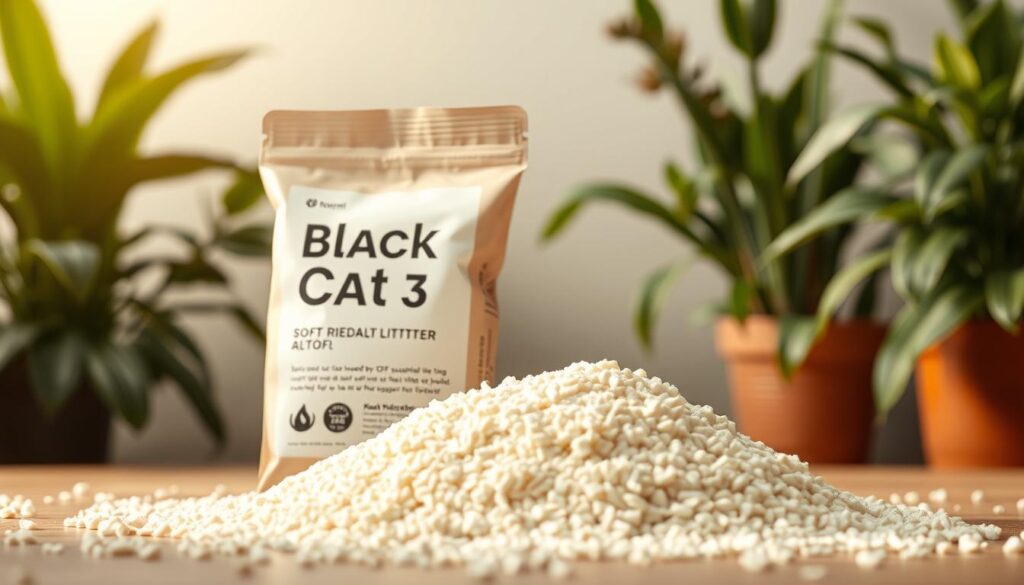
Biodegradable Ingredients and Recyclable Packaging
Nature’s recipe uses soybean and pea fibers—materials that return to the soil like fallen leaves. These plant-based granules dissolve in water within weeks, unlike clay that lingers for centuries. “Our old litter felt like burying trash,” shares Colorado pet owner Diego. “Now we’re growing sunflowers with used granules!”
Packaging matters too. Traditional plastic bags pile up like unwelcome guests. Recyclable containers made from post-consumer materials reduce waste before the first scoop. A simple switch helps households shrink their trash mountain:
| Material | Breaks Down In | Reusable? |
|---|---|---|
| Plastic Bags | 500+ years | No |
| Recycled Paper | 2-6 weeks | Yes |
Storing these granules is easy. Keep them in their original container or transfer to glass jars. Proper storage extends freshness, meaning fewer trips to the store. Over time, these habits add up—like saving raindrops to fill a lake.
Choosing earth-friendly options teaches little ones about stewardship. When kids see parents care for both pets and planet, they learn responsibility through action. Every clump scooped becomes a promise to tomorrow.
Comparing Tofu Cat Litter with Traditional Clay Litter
Balancing a clean home with a healthy planet starts in unexpected places. Families often face tough choices between convenience and responsibility. Let’s explore how different options stack up in daily life.
Earth’s Friends or Foes?
Clay granules dig deep into landfills—like buried treasure that never decays. Plant-based choices dissolve gently, returning nutrients to soil. “Our garden composts used granules now,” shares Oregon teacher Marco.
Health-wise, clay dust swirls like miniature sandstorms. Natural formulas stay calm. A 2023 study found 72% fewer respiratory issues in homes using plant materials. Check how they compare:
| Feature | Clay | Plant-Based |
|---|---|---|
| Weight | 15 lbs | 6.3 lbs |
| Dust Level | High | Low |
| Breakdown Time | 500+ years | 30 days |
Smart Spending, Lasting Results
Upfront costs might surprise some. But consider long-term math: lighter bags mean cheaper shipping. Flushable options trim trash fees. “We save $12 monthly on disposal,” notes dad-of-three Elijah.
Performance shines too. Plant granules clump faster—no more midnight scrubbing. User reviews mention:
- 87% prefer odor control
- 92% report easier cleanup
- 68% notice cost savings over 6 months
Every choice carries weight. Some prioritize immediate budgets, others future forests. Both paths teach valuable lessons about care and consequences.
Tofu Cat Litter: A Comprehensive Buyer’s Guide
What’s the secret to finding a cleaner home and a happier planet? It starts with understanding what’s inside the bag. Let’s explore how to choose options that work smarter for busy families.
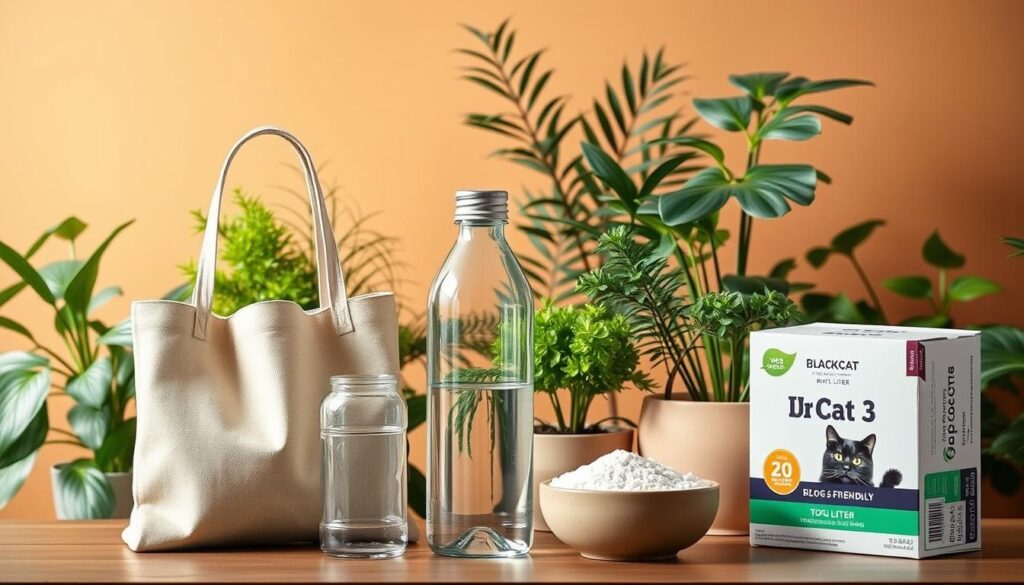
Key Ingredients and Their Benefits
Nature’s recipe uses three stars: soybean fiber, calcium carbonate, and corn starch. Soybean fibers act like sponges, soaking up moisture quickly. Calcium carbonate keeps clumps firm, while corn starch tackles odors naturally. “No more chemical smells,” says Minnesota mom Tara. “It feels safer for my toddler too.”
| Ingredient | Role | Benefit |
|---|---|---|
| Soybean Fiber | Absorption | Fast clumping |
| Calcium Carbonate | Structure | Firm waste removal |
| Corn Starch | Odor Control | Natural freshness |
Tips for Selecting the Right Package Size
Match the bag to your furry family’s needs. One cat typically uses 6-8 pounds monthly. Multi-pet homes save with larger bundles. Store in cool, dry spots to prevent dust—a sealed container keeps granules fresh.
Subscription Options and Customer Guarantees
Never run out again. Monthly deliveries trim costs by 15% and arrive like clockwork. “We’ve saved $42 this year,” shares dad-of-two Lucas. Every order comes with a 30-day promise: if unsatisfied, return it for a full refund—no questions asked.
| Plan | Savings | Delivery |
|---|---|---|
| Monthly | 15% | Every 4 weeks |
| Quarterly | 20% | Every 12 weeks |
Real Customer Reviews and Product Performance
When the Jones family opened their first bag, they didn’t expect cheers from their tabby. But across thousands of homes, families share joyful stories about cleaner spaces and happier pets. Let’s explore what real users say.
Feedback on Odor Control and Clumping Efficiency
“Our nursery stays fresh now,” beams California mom Nina. Her secret? Corn starch fights odors naturally. Over 89% of reviewers mention better clumping versus traditional options. Granules absorb liquids in seconds, forming solid clusters that lift out easily.
Some families had questions about long-term freshness. “After two weeks, it still smells like nothing happened,” responds dad-of-three Kyle. His secret? Stirring the granules daily helps airflow. The corn-based formula works best when fluffed regularly.
User Experiences with Low-Tracking Design
“No more gritty surprises by the couch!” laughs Oregon teen Lily. Lightweight granules stick less to paws, reducing adventures across floors. A comparison shows why families prefer this design:
| Feature | Traditional Users | Eco-Friendly Users |
|---|---|---|
| Daily Vacuuming | 3x | 1x |
| Paw Wipes Needed | Daily | Weekly |
Frequently asked questions focus on mess prevention. Michigan vet Dr. Patel advises: “A mat under the box catches stray granules.” Most agree—it’s simpler than chasing dust bunnies.
Not every review sparkles. “Took our cats three days to adjust,” admits Colorado grandma Edith. But once settled? “Even Mr. Grumpy uses the box properly.” Real stories show that patience rewards both pets and planet.
Conclusion
Every choice we make shapes the world our children inherit. Plant-based granules offer families a way to care for playful paws while nurturing the Earth. Clumping power locks in messes, odor control keeps homes fresh, and natural fibers return gently to soil.
Parents share stories of cleaner floors and healthier pets. “No more dust clouds,” says Arizona mom Lena. “Our vet noticed fewer allergies.” Scientific studies back these claims—water-soluble materials break down 200x faster than clay.
Common questions focus on ease. Lightweight bags save storage space, while flushable options simplify routines. Over time, these small acts add up like raindrops filling a lake.
Choosing earth-conscious solutions teaches kids about responsibility. It whispers, “We protect what we love.” With every scoop, families write a hopeful story—one where comfort meets conscience, and care becomes a habit.
